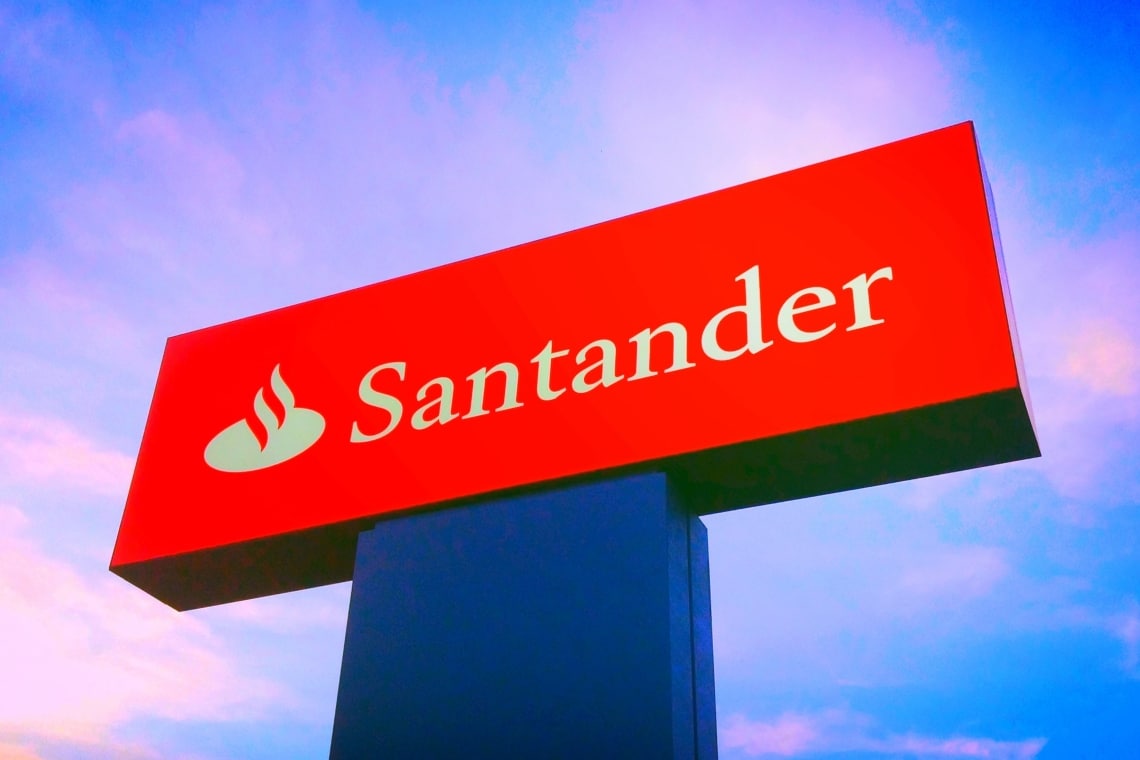Santander UK, the subsidiary of Spanish financial giant Banco Santander (SA), issued a notice claiming that investing in crypto could be a high-risk move.
The announcement by financial giant Santander came on 3 November. On the same day, the British subsidiary also imposed a limit on crypto exchanges that were being made using the company’s mobile and online banking services.
Summary
Why does Santander restrict crypto and deem it a risky investment?
Following Santander UK‘s announcement about the limit imposed on cryptocurrencies and their riskiness as an investment, it is important to try to understand why the bank made this decision.
It all seems to stem from the Financial Conduct Authority (FCA), the UK’s financial regulatory body whose goal is to protect consumers.
Indeed, the latter has warned the public about such risks, claiming that its aim is to do everything possible to protect customers.
In this regard, Santander UK also believes that restricting payments to cryptocurrency exchanges is the best way to ensure that customers’ money remains safe, the bank explained.
Indeed, the financial institution has set a limit of £1,000 ($1,120) per transaction and a total limit of £3,000 ($3,360) in any consecutive 30-day period.
For or against crypto: what businesses think about it
It seems that despite the Santander bank’s warning, its member companies are devoting a lot of effort to tokenization, commodity tokens, and cryptocurrency services in Brazil.
The Spanish banking giant itself has set up a Bitcoin (BTC) exchange-traded fund (ETF) in Spain.
However, Santander UK must operate under UK financial laws and Santander’s other associated businesses navigate differently.
In fact, the notice posted on the bank’s web portal states that customers can still receive payments from cryptocurrency exchanges to their accounts, but notes that further changes may come in the future.
The update from Santander UK reports:
“We will be making more changes to limit or prevent payments to cryptocurrency exchanges in the future, although we will always let you know before making these changes.”
Hence, the question arises, why do Santander member firms continue to think their projects around crypto and tokens despite the behemoth’s warnings?
Perhaps, because adapting classical finance to the decentralized finance of crypto is a way to meet the future. One does not necessarily have to exclude the other; collaboration is possible.
Think, for example, of Visa and Mastercard, which now allow payments in crypto by converting them into the local currency: a smart way to combine the two needs.
Santander at war with crypto giant Binance, why?
In Santander UK’s update, the bank also highlights the largest cryptocurrency exchange by global exchange volume, namely Binance. Indeed, not long ago Santander UK has special restrictions when it comes to dealing with Binance.
The last part of Santander’s announcement reads:
“We will continue to prevent payments from being sent to Binance. You can still withdraw any money you have with Binance into your Santander account.”
The bank also shares an FCA warning written about Binance.
But why is Santander against Binance?
The answer to this question goes back to July 2021, when UK banks declared war on cryptocurrencies, unwilling to consider Binance as a service for their customers.
Santander UK has never changed its mind since, and to this day continues to oppose the crypto exchange giant. Binance is the leading platform for buying and selling Bitcoin, the most prestigious and expensive crypto on the market.
In July 2021, within days, millions of British account holders were banned from trading with Binance. Leading the hostilities at the time was Barclays, the UK’s second-largest bank, which prevented its customers from transferring funds to Binance.
The decision had come again following a warning from the Financial Conduct Authority, which had declared that the digital asset exchange was no longer allowed to engage in cryptocurrency activity within the UK’s borders.
Following Barclays’ decision, Santander also made its move. Indeed, back in the day, the bank decided to prevent payments to the world’s largest cryptocurrency exchange, Binance, in an effort to prevent fraud.
Despite this, Santander at the time already stated that it would not take away customers’ ability to withdraw cash from Binance. Insisting that it was only following the FCA’s warning to consumers in banning payments.
Santander UK and hostility to crypto, the political significance
The fact that banks, including Santander, have raised or still are raising barricades against the crypto universe can only have a deeper meaning, much of it political.
In fact, banks, fearful of account holders migrating to the nascent blockchain platforms, are mostly acting out of fear.
Some time ago, the UK regulator issued a formal warning to consumers about Binance. The platform had been banned from regulated financial activities, including arranging conventional investment deals.
In addition, its authorization to conduct cryptocurrency transactions in the United Kingdom had also been removed.
The accusation leveled at Binance by banks was related to the lack of transparency and compliance with market rules for all its services. But is this really the case? Are the accusations well-founded? Or is it just the banks’ fear of being replaced that causes them to take action?




